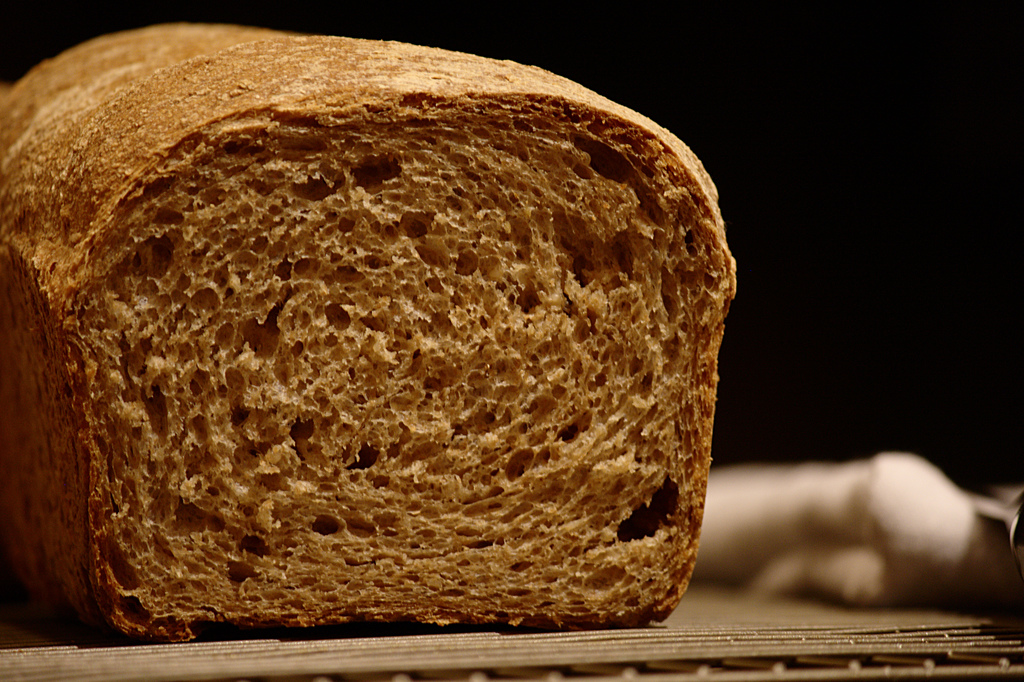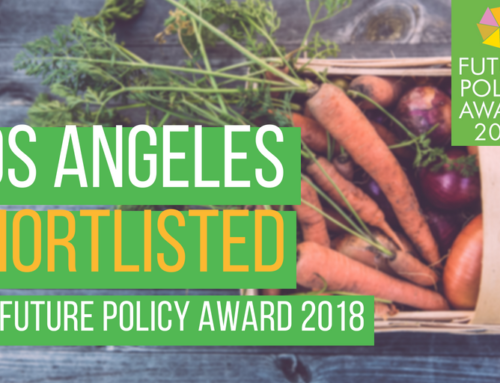The savory smell of nutmeg and cinnamon wafts through the Azusa bakery, where dozens of workers in blue gloves and hairnets cook up L.A. Unified’s newest star product. The “Glorious Morning” muffin is chewy and moist, packed with whole wheat, raisins and carrots — along with flaxseed for heart health and brain development.
The muffin is good for children but also for the bakery’s business. The Los Angeles Unified School District’s order with Buena Vista Food Products Inc. to bake 4 million servings of muffins, coffeecake and corn bread every month has doubled the firm’s business and created 100 jobs this year. To keep up with the district’s orders, the bakery has invested $1 million in four new ovens and other equipment.
“We haven’t sold this much in the history of our company,” said Buena Vista President Laura Trujillo. “Working with L.A. [schools] has completely changed the way we purchase and produce.”
In a groundbreaking effort, the nation’s second-largest school district is using its enormous purchasing clout to support local farmers and businesses. In just two years, the district has boosted its local purchases of fruit and vegetables from 9% of its $20-million annual produce budget to 75% today. L.A. Unified now buys locally for at least 50% of its overall $125-million food budget, about double the proportion of two years ago, according to David Binkle, the district’s food services director.
L.A. Unified has bailed out struggling orange growers in Riverside County, buying their produce over Florida citrus. Sustainably grown whole wheat comes from Fresno farmers rather than the Midwest. Beef from Chino, distributed by an Inglewood company, largely has replaced a Cincinnati producer.
“It’s fresher food from farmers we know,” Binkle said.
The preference for products that originate within about 200 miles of Los Angeles was formalized last year by the Board of Education, which also directed the district to purchase 5% of its produce from small-to-medium-sized farmers. The district became Los Angeles’ second institution — city government being the first — to pledge to support local purchasing, workers’ rights, animal welfare, environmental sustainability and nutrition in a “good food” program developed by the Los Angeles Food Policy Council.
“The leadership LAUSD has shown in this area has resonated not only locally but also nationally,” said Paula Daniels, the food policy council’s founder and chairwoman. “By expressing support for these values through their purchases, the impact all along the food chain is profound.”
The local purchasing program is the latest advance in the district’s move toward more healthful foods, which began a decade ago when the school board banned junk food from campus vending machines, then eliminated flavored milk. The momentum accelerated when the district awarded two contracts in 2011 and 2012 worth $35 million for bread, produce and other items to Gold Star Foods Inc., a school food distributor based in Ontario.
Sean Leer, Gold Star’s vice president of sales, said the contract was an opportunity to “do business and do good at the same time.” The school system previously purchased items based on the lowest bid, usually from more distant suppliers. But Gold Star was able to use the district’s enormous volume as leverage to negotiate lower prices from local vendors and also save money through cheaper transportation costs.
“With L.A.’s volume, we were immediately in business in a big way,” Leer said. “We think with school meals, we can prop up the food economy of California.”
One key partner in the district’s effort is Field Fresh Foods Inc., a produce processor in Gardena.
On a recent production day, dozens of workers in rubber boots were operating high-speed machines that cut and washed lettuce heads in chilled chlorinated water, then dried and packaged them. The firm processes 240 kinds of fruit and vegetables for L.A. Unified and other customers; it also has developed, specifically for the school district, individual servings of fruit and vegetables packaged in colorful “Fresh Snacks” bags.
At any given time, the firm obtains 70% or more of its produce from local growers: broccoli and celery from Santa Barbara; tomatoes, romaine lettuce and strawberries from Oxnard. But onions currently are being purchased from the Pacific Northwest until they are ready for spring harvest in the Imperial Valley. And some products, such as bananas, aren’t grown locally.
Emelio Castaneda, Field Fresh president, said his firm has worked with L.A. Unified for years, but the district’s push for more local produce has doubled its orders from $4 million to $8 million annually and created 25 new jobs. These include entry-level vegetable cutters, skilled machine operators and administrative support staff.





